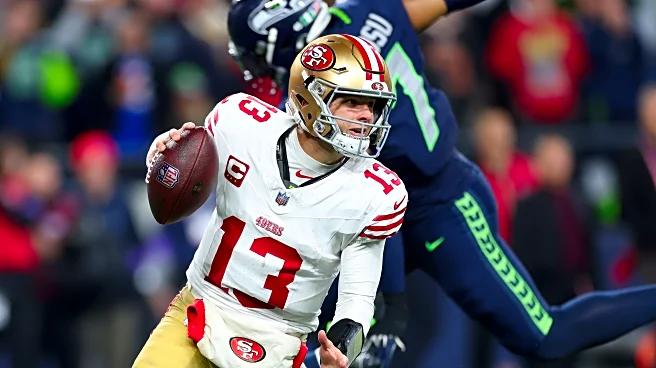What's Happening?
President Trump has granted a pardon to UK billionaire Joe Lewis, allowing him to visit the United States for medical treatment and family visits. Lewis, who owns Tottenham Hotspur football club through
his family trust, was previously charged with securities fraud and conspiracy. He pleaded guilty in 2024, avoiding prison by agreeing to pay a $5 million fine and accepting probation. The charges stemmed from allegations that Lewis used insider information to benefit his contacts financially. The pardon was confirmed by a White House official, who noted Lewis's admission of wrongdoing and his cooperation with authorities.
Why It's Important?
The pardon of Joe Lewis by President Trump highlights the intersection of high-profile legal cases and executive clemency. This decision may impact perceptions of justice and fairness, particularly in cases involving wealthy individuals. It underscores the influence of political decisions on legal outcomes and raises questions about the criteria for granting pardons. The move could affect public trust in the legal system and the presidency, as it involves a prominent figure with significant business interests. Additionally, it may influence future cases involving insider trading and corporate governance.
What's Next?
Following the pardon, Joe Lewis is expected to resume his activities without the legal constraints previously imposed. His ability to travel to the U.S. may facilitate personal and business engagements, potentially impacting his investment firm Tavistock Group. The decision may prompt discussions among legal experts and policymakers regarding the use of presidential pardons, especially in cases involving financial crimes. Observers may watch for any changes in the regulatory environment concerning insider trading and corporate transparency.
Beyond the Headlines
The pardon raises ethical questions about the balance between justice and mercy in the legal system. It may lead to debates on the role of wealth and influence in securing favorable legal outcomes. The case also highlights the global nature of financial crimes and the challenges in prosecuting individuals with international business interests. Long-term, this development could influence how similar cases are handled, potentially affecting corporate ethics and governance standards.











